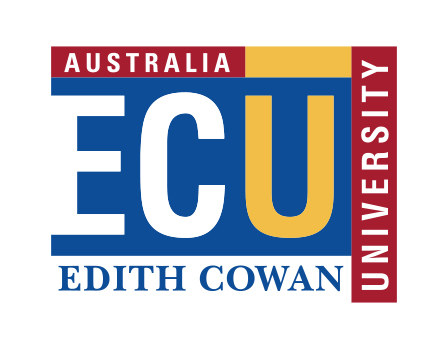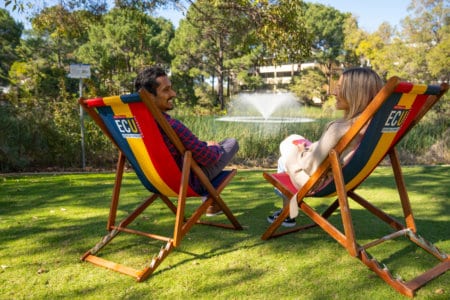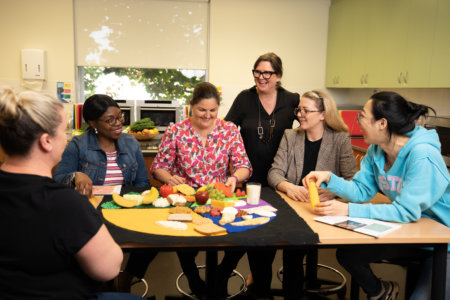Creative thinking is ranked the second most important skill a worker should have in the World Economic Forum’s Future of Jobs Report 2023. Alongside skills like analytical thinking, resilience, flexibility, motivation, and curiosity — creative thinking is often the key that enables workers to adapt to complex workplaces and reap the benefits of a fulfilling career.
This is why the Edith Cowan University’s (ECU) School of Medical and Health Sciences infuses the power of creative thinking into its academic offerings. They, too, believe that creative thinking is a fundamental element that underpins all aspects of a career in healthcare and other health-oriented industries.
And anyone can be a creative thinker with the right training — like the teaching that takes place at Australia’s biggest Occupational Hygiene teaching laboratory. Here, two programmes are delivered — the Master of Occupational Health and Safety (OHS) and Master of Occupational Hygiene and Toxicology. The first focuses on developing professionals who can make a difference in the complex area of preventing workplace injuries. The Master of OHS equips graduates to lead organisational improvements by complying with legislation and implementing a risk-based approach to manage any workplace hazards. By learning how to investigate an incident, manage risk and communicate with leaders and workers, OHS professionals make a real difference to people’s lives and organisational efficiency. The second was designed to train students to identify, manage and control occupational and environmental hazards across all industries — in roles that often include keeping organisations and local communities aware of the potential health impacts that can result from exposure to hazards.
Where these exist, students use creative thinking to formulate plans and procedures to ensure that people and their environments remain safe. The teaching strategy aligns with the foundational principles of Occupational Hygiene, which is both a science and an art.
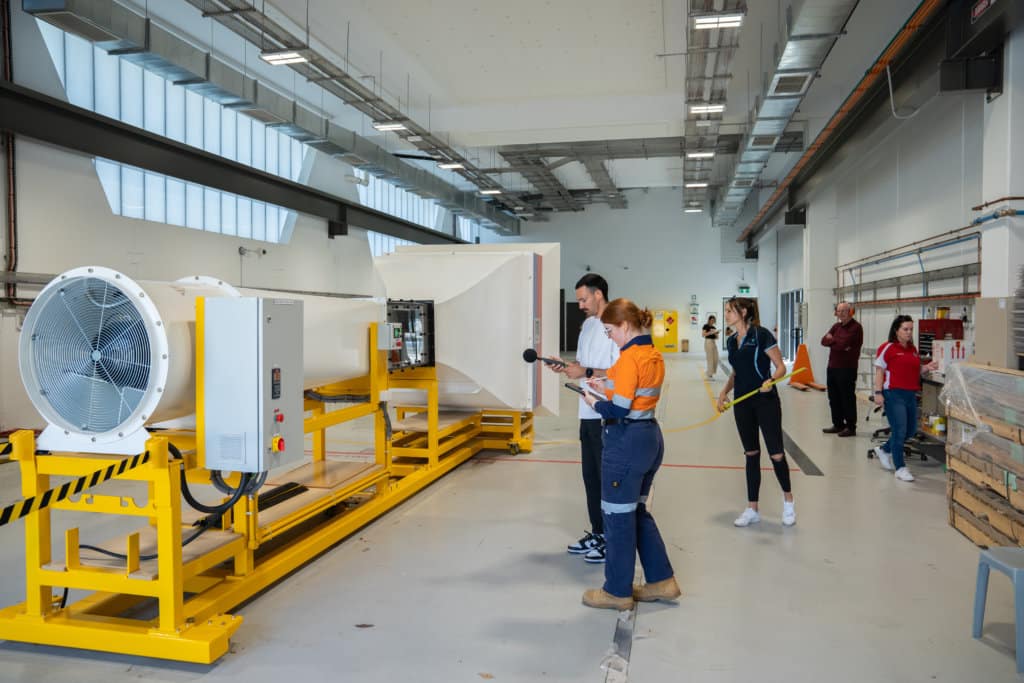
ECU’s world-class research continuously provides solutions to key health issues facing communities today. Source: Edith Cowan University
Students in both programmes gain invaluable knowledge and skills and can also leverage ECU ground-breaking research into improving the working lives of people all over the world. One such research project uses the WAM (Workplace Atmospheric Multi-sampler), a cutting-edge device, being used to validate real-time monitoring equipment using traditional sampling methods for dust exposure monitoring. The WAM project is collecting data and information which will enable more detailed analysis of worker exposure, and therefore help reduce exposure to these serious hazards. This is a critical project specifically due to recent focus on task-based sampling and the recurrence of dust disease. There is a need for instant feedback regarding worker exposures. This is just one example of how serious ECU’s School of Medical and Health Sciences is about inspiring students through innovation.
This is a theme that features through ECU’s flexible Allied Health courses — two of which fully harness the benefits of experiential learning: The Graduate Diploma of Critical Care Paramedicine and the Master of Critical Care Paramedicine. As students complete two 40-hour clinical placements — one in the Operating Theatre alongside an anaesthetist and another in the Intensive Care Unit alongside medical registrars and consultants — they gain competencies in advanced airway management, mechanical ventilation, invasive pressure monitoring, inotropic drug support, cardioversion, and sedation. This type of learning reaches beyond the practical level; it inspires students to discover gaps in their knowledge and refine their skills in new and exciting ways.
Classroom sessions allow students to work with others online, generating fresh ideas and solutions to difficult problems in a supportive environment. For example, students get to apply creative thinking to reflect on clinical interventions and therapies that are undertaken in hospitals. Based on the best available evidence, they are also expected to examine whether certain hospital interventions can be introduced in the pre-hospital setting. Such experiences sharpen their ability to come up with new insights — a trait that many organisations need today. This is why a majority of ECU’s Critical Care Paramedicine graduates are employed with jurisdictional ambulance services in Australia. Other graduates take up leadership positions or work internationally.
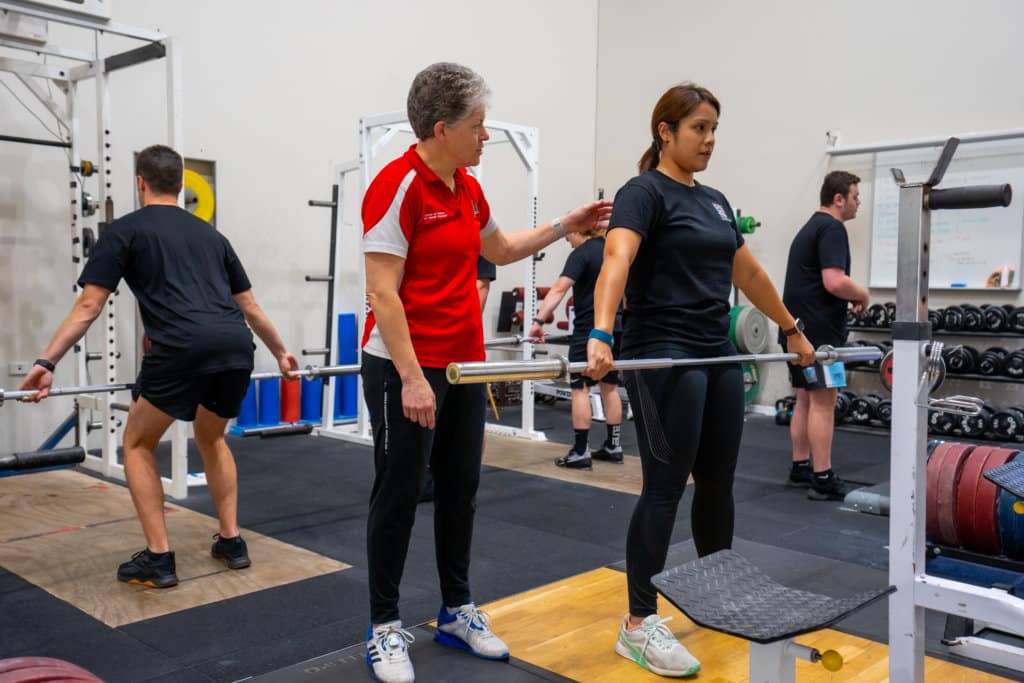
To evaluate athlete performance, ECU students are taught to apply cognitive, technical and creative skills. Source: Edith Cowan University
ECU’s Strength and Conditioning graduates are trailblazing their way to success too. Claudio Altieri from Venezuela completed his Master of Exercise Science (Strength and Conditioning) in 2016 before launching a global career centred around solving complex problems in high-performance sports. Today, he is a Head of Performance for Loudoun United FC within the USL Championship in the USA.
The qualification was equally beneficial for Joshua Bonhotal, who, upon graduating, worked with the Chicago Bulls before becoming Purdue University’s Director of Men’s Basketball Sports Performance. Then, he used the creative thinking skills he developed at ECU to turn the start-up Future into a public company. Today, he is Head of Human Performance Investing & Evolution Strategy Lead with TXV Partners.
The sky’s the limit for Fathima Asma Sheriff, too. As a Master of Public Health (MPH) graduate from ECU, she has the knowledge and skills to pursue a wide range of occupations — thanks to the MPH’s interdisciplinary nature. Incorporating knowledge and perspectives from various fields — such as epidemiology, biostatistics, environmental health, social sciences, and policy — it lets students make crucial connections between related and even seemingly unrelated areas.
The course is flexible, enabling learners to specialise in an area of interest; allowing students to actively engage in real-world public health scenarios. And it’s collaborative, encouraging students to leverage different perspectives and foster creative thinking through synthesising ideas.
These programmes have in common an ability to place graduates at the forefront of advancing health and bettering communities. So, if you’re ready to shape the future of healthcare with one of ECU’s many thought-provoking qualifications, it’s time to get creative. Click here to apply to the School of Medical and Health Sciences today.
For more information about Edith Cowan University, follow them on Facebook, Twitter, and Youtube.






